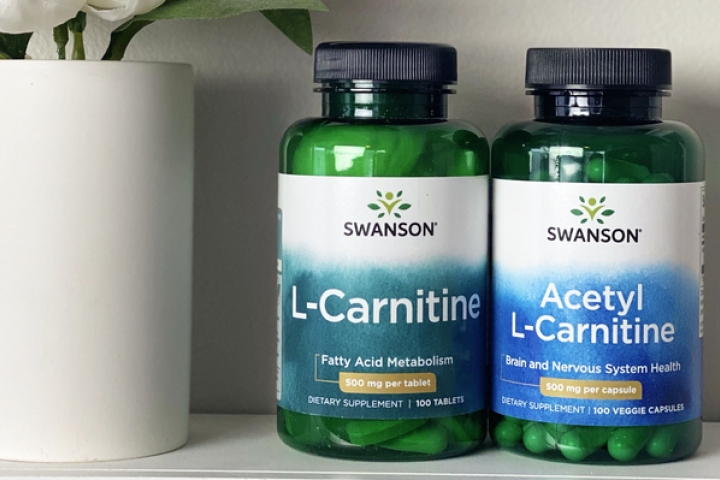How to Improve Mental Wellness
Three Universal Methods That Improve Mental Wellness
Mental wellness, or mental health, may not always be the first thing we consider when it comes to our lifestyle. It’s easy to go through our day focusing on the hustle and bustle, rather than checking in on ourselves and how we feel. When our mental health needs go unchecked, they can spill over into our daily lives and leave us feeling fatigued, down in the dumps, or just “off.”
However, the growing interest in prioritizing mental wellness is groundbreaking and can significantly enhance our quality of life. Small changes in our routines can lead to substantial impacts, making us feel happier and more fulfilled.
By prioritizing your needs, you may find that you're more able to feel your best, work your best, and live as the best version of yourself, rather than merely coasting through your day-to-day activities.
There are three key areas that directly affect mental wellbeing: sleep, stress, and cognition. When we take time to practice healthier habits that nourish these areas, we are taking the necessary steps to live healthier from an often-neglected foundation—our mind.
Restful Sleep and Mental Wellness
We’ve all had restless nights where we're left tossing and turning. How do you usually feel when you haven’t had restful sleep?
Some of us are left completely exhausted, making any small task seem like a herculean feat and causing us to procrastinate even with important tasks. Others find themselves unable to think straight and don’t quite feel right throughout the entire day. And some of us become irritable and lack patience with little things that don’t usually bother us.
Regardless of how fatigue affects you, when we don’t get restful sleep, our mental wellness is impacted.
The Sleep Health Foundation recommends that adults aged 18-64 should get between 7-9 hours of sleep each night. When we don’t get restful sleep, our bodies produce more cortisol, a hormone associated with stress, which affects mood, cognitive function, and even our ability to sleep well the next night.1
Conversely, when we do get restful sleep, we are more able to have a healthy response to stress, our mood is more balanced, and we have more cognitive clarity throughout the day.
Healthy sleep hygiene is crucial for getting the sleep we need. By keeping your room cool, dark, and quiet, you’ll have an easier time falling asleep and staying asleep. You can also build a nighttime routine that helps you wind down, such as taking a warm bath a couple of hours before bed, reading a book, or listening to relaxing music.
A great rule of thumb is to turn off any screens or sources of blue light at least 30 minutes before bed. Blue light can trick our mind into thinking it’s daytime and keep it engaged, making it difficult to fall asleep quickly.2
You can also add supplements to your evening that can help relax your mind. Look for ingredients like chamomile, valerian root, melatonin, and 5-HTP to help get better sleep.
Healthy Stress Management and Mental Wellness
Stress is sometimes unavoidable and can completely disrupt our days. It can cause us to buckle under pressure, feel helpless, and even cause physiological changes like higher levels of glucose in our bloodstream due to elevated cortisol levels.
The American Psychological Association suggests that stress can impact multiple aspects of wellness, such as causing physical tension and negatively affecting heart and digestive health. When we leave our mental health unchecked, stress can continue to accumulate, draining us of mental energy, making it more difficult to fall asleep later, and even impacting our ability to concentrate the following day.
Managing stress and maintaining a healthy response to it is crucial for ensuring that our cortisol levels remain reasonable, allowing us to keep a clear head, slow racing thoughts before bed, and complete tasks with ease.
While methods for winding down can vary from person to person, a simple way to manage stress is to find small breaks throughout the day to give our minds a chance to recover. Some enjoy meditation or breathing exercises, while others may journal, draw, or even move more (exercise) to release frustrations.
If you find an activity you enjoy, stick with it and even pair it with some soothing supplements like ashwagandha, saffron, or magnesium to maximize stress relief. Even small activities like watering plants, spending time with a pet or loved one, and cooking a meal can help soothe your thoughts and bring peace of mind.
Clear Cognition and Mental Wellness
Cognition, or overall brain function, includes elements like focus, energy, memory, and more. Clear cognition is necessary for us to carry out everyday functions and activities, from picking up groceries to learning new skills. However, if you’ve been bogged down by stress or haven’t slept well, it can be difficult to stay on track with even the simplest of tasks.
Sleep quality and stress levels both heavily impact healthy cognitive function. During each sleep cycle, our brain has the opportunity to both recover and remove byproducts that accumulate throughout the day, giving it a fresh start the next day.3 Without seven hours of sleep, we’re not able to give our brain enough time to recharge, affecting our mood, ability to focus, and more.
Similarly, stress levels also impact our brain health. While cortisol, an essential stress hormone, is beneficial in moderation as it is released during our fight or flight response to keep us alive and focused under difficult circumstances, chronic stress and excessive amounts of cortisol can be detrimental. This hormone can negatively impact many parts of brain function, from concentration and memory to learning new skills.
While healthy stress management and sleep habits are excellent ways to support cognitive function, there are also other methods to keep your mind sharp over time. Engaging in activities like word games, sudoku, and puzzles is beneficial. Physical activity can increase blood flow to your brain, and getting seven hours of restful sleep is one of the best ways to allow your brain time to recharge. Opt for mind-nourishing foods like broccoli, salmon, and even coffee, and look for nootropics to aid with mental energy, memory, and focus.
Prioritizing Mental Wellness
The first step toward living a more balanced, healthy lifestyle is to address mental wellness as a daily necessity. Trends come and go, but mental health is a fundamental part of how we think, feel, and interact with our surroundings. Be sure to take the time you need to step back from everything going on in the world to assess your unique needs and find methods of self-care that work for you.
Remember that mental wellbeing isn’t a one-size-fits-all approach. Whatever brings you joy, helps you relax, or makes you feel at ease is a great way to give yourself some time and space to recover.
You be well, now.
BubbForest
*These statements have not been evaluated by the Food and Drug Administration. These products are not intended to diagnose, treat, cure, or prevent any disease.
Sources:





Leave a comment